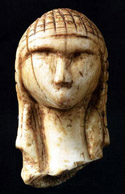Anthropology, Department of

Department of Anthropology: Faculty Publications
Document Type
Article
Date of this Version
2007
Abstract
Objective: Cross-cultural research must always deal with the problem that meaning systems and behaviors cannot be readily compared from one culture to the next because the sociocultural context can vary so widely.
Design: The organizers of Project AGE: Age, Generation, and Experience, a multicultural study of aging, recognized this problem and devised instruments for studying age that allowed for cultural variation as well as comparability at higher levels of abstraction. The principal investigators of Project AGE and the individual researchers made every effort to gain an emic understanding (understanding based on categories recognized by the local respondents) of people’s attitudes about aging in the several cultures in which we worked. For comparison to take place, we needed to use similar question frames to elicit comparable information across societies of different types.
Results: Many questions put to people about their attitudes toward their own and other persons’ aging were readily understood by our respondents. But some topics proved difficult to investigate systematically across cultures.
Conclusions: In hindsight, we could have achieved additional value from our interviews if we had incorporated some independent measures of physical health and capacity. Such data would have added depth to our discussion of within-site and across-site differences on both the independent measures themselves and their possible correlation with attitudinal data


Comments
Published in Menopause: The Journal of The North American Menopause Society, Vol. 14, No. 4 (2007), pp. 680-687; doi: 10.1097/gme.0b013e3180986289 Copyright © 2007 by The North American Menopause Society; published by Wolters Kluwer/Lippincott. Used by permission.